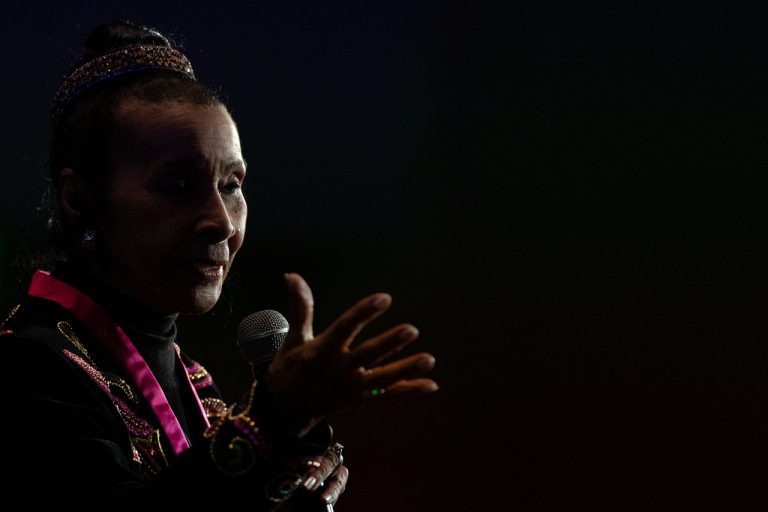
Opinion: Trump Struggles Struggles to Counter Harris’s Campaign Momentum, Resorting to a Game Plan Stuck in the Past
Joe W. Bowers Jr. | California Black Media
OPINION (CBM) – Since Pres. Joe Biden decided not to seek re-election, Donald Trump has struggled to find his footing in a campaign that was previously geared toward attacking Biden’s age and fitness.
His performance at the National Association of Black Journalists (NABJ) Convention last week highlighted his inability to redefine his new opponent, Vice President Kamala Harris. Trump’s comments, particularly his questioning of Harris’s racial identity, failed to resonate with the audience and underscored his reliance on divisive rhetoric.
Trump’s response to Harris’s candidacy has focused on personal attacks rather than her record or Biden’s policies. He has used nicknames like “Laffin Kamala, Lying Kamala, and Phony Kamala” and he has concentrated on her race — her father is Black Jamaican, and her mother is East Asian Indian.
At the NABJ convention, Trump clashed with a panel of Black women journalists, accusing Harris of “switching her race” to gain political advantage. “She was always of Indian heritage, and she was only promoting Indian heritage. I didn’t know she was Black until a number of years ago when she turned Black, and now she wants to be known as Black?”, Trump claimed.
This approach, intended to sow doubt about Harris’s authenticity, instead highlighted Trump’s persistent use of racially charged rhetoric. His failure to adequately address issues relevant to the Black community, such as the rising cost of living, small business support, maternal mortality, voting rights, and police reform, further alienated the NABJ audience.
Trump’s inability to adapt is also evident in his decision to cancel the Sept. 10 ABC Presidential debate, insisting on a new format with Fox News. This reflects his difficulty in keeping up with Harris’s campaign momentum. He characterized Harris’s rise as a “coup” within the Democratic Party, as he struggles to address her ascent effectively.
Harris, who attended Howard University, a historically Black university (HBCU), and is a member of Alpha Kappa Alpha (AKA), a Black sorority, has been measured in responding to Trump’s divisiveness. At a Sigma Gamma Rho sorority event in Houston, she stated, “The American people deserve better. The American people deserve a leader who tells the truth. A leader who does not respond with hostility and anger when confronted with the facts.”
Harris, as a multiracial American, has the ability to “code-switch”—a skill many people of color use to navigate various cultural environments and connect with diverse audiences. This skill allows her to authentically engage with different communities, whether she is rigorously questioning Supreme Court nominees, addressing issues at historically Black colleges and universities, or hosting Diwali celebrations. Code-switching is not about deceit but about adapting communication styles to resonate with different groups, a testament to her versatility and relatability.
Trump’s inability to grasp this concept underscores his disconnect from the experiences of people of color and multiracial Americans. Instead of recognizing code-switching as a valuable skill, Trump has tried to frame it as deceitful. This tactic plays into a broader narrative Trump has pushed that questions the authenticity of people who do not fit into a narrow, often racially homogenous, mold. By framing Harris’s multifaceted identity and her ability to adapt her communication as something suspect, Trump reveals his limited understanding of the complex and dynamic nature of American identity.
In contrast to Trump, Harris’ campaign is focused on issues resonating with a broad spectrum of voters, such as voting rights, women’s reproductive freedoms, and economic inequalities. Her message of inclusivity and progress stands in stark contrast to Trump’s attempts to rekindle fears of a changing America. She has even begun defending her border record, releasing a video framing her as pro-border security.
Trump’s reliance on racially charged rhetoric reinforces his image as a candidate stuck in the past. Harris can use Trump’s attacks to her advantage by staying focused on her message of unity and progress.
Harris’ campaign mentioning the “weirdness” and outdated nature of Trump’s worldview may prove effective. She is presenting herself as the candidate of the future. This framing helps her cast Trump and his allies as out-of-touch with modern American values as she and her surrogates point out the rollback of rights spelled out in the ultra-conservative Project 2025 agenda, which includes proposals to restrict voting rights, undermine reproductive freedoms, weaken environmental protections and rewrite parts of the Constitution, such as the 14th Amendment which grants citizenship rights.
As we approach the November election, we can expect the contrast to become starker between Trump’s provocative rhetoric that yearns for a return to an ambiguous bygone era of American greatness and Harris’ upbeat message that imagines a unified, forward-looking, stronger America where our diversity is an asset.
In an increasingly multi-racial and multi-cultural America where there are tendencies to focus on the concerns that divide us, it is incumbent on both candidates to build their candidacies on a commitment to inspire voters to collectively pursue the best possibilities for our country and for all Americans.
We are all in this together.





